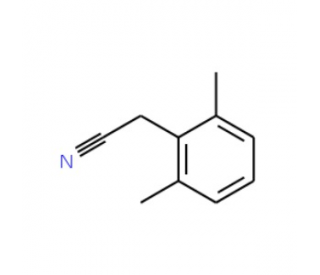详细说明
Kit Summary
For the differentiation of dendritic cells from mouse bone marrow.
Key Benefits
Provides optimized reagents needed to induce immature and mature dendritic cell differentiation from mouse bone marrow cells
Contains high quality bioactive proteins
Involves validated and straightforward procedures
Does not require specialized instrumentation
Why Differentiate Dendritic Cells ex vivo?
Dendritic cells (DCs) are key mediators of both innate and adaptive immune responses. Immature DCs express specific pattern recognition receptors that serve as expression markers and allow for the capture and processing of foreign antigens following infection. Upon activation, immature dendritic cells mature and increase the expression of class II MHC and co-stimulatory molecules important for effective antigen presentation to naïve T cells. Cytokines produced by DCs can also promote the differentiation of CD4+ T helper cells as part of immune activation. The CellXVivo™ Mouse Dendritic Cell Differentiation Kit contains the media and cytokine components to generate immature and mature dendritic cells from mouse bone marrow.
Reagents Provided
This kit contains the following optimized proteins and reagents to drive the efficient differentiation of mouse monocytes into dendritic cells.
Mouse Dendritic Cell Base Media
Recombinant Mouse GM-CSF
Recombinant Mouse IL-4
Recombinant Mouse TNF-alpha
Erythrocyte Lysing Buffer
Reconstitution Buffer 1
Stability and Storage
Store the unopened kit at < -20 °C. Do not use past the kit expiration date. Opened or reconstituted Mouse Dendritic Cell Base Media, Recombinant Mouse GM-CSF, Recombinant Mouse IL-4, or Recombinant Human TNF-alpha should be stored at 2-8 °C under sterile conditions for up to 30 days or at -20 °C to -70 °C in a manual defrost freezer for up to 3 months. Opened Reconstitution Buffer 1 and Erythrocyte Lysing Buffer should be stored at 2-8 °C under sterile conditions for up to 3 months.
Data Examples
Morphology of Mouse Dendritic Cells Derived from PBMCs. Mouse PBMCs were differentiated into immature mouse dendritic cells by culturing for 5 days in reagents included in the CellXVivo™ Mouse Monocyte-derived Dendritic Cells Differentiation Kit. Immature dendritic cells exhibit characteristic dendritic cell morphology. |
Kit-derived Mature Mouse Dendritic Cells Induce Proliferation of Allogeneic T Cells. Serial dilutions of TNF-α-treated mature dendritic cells were incubated with allogeneic mouse T cells for 3 days. 3 H-Thymidine (3 H-TdR) was added for the final 18 hours of the culture. Cells were harvested and the incorporation of 3 H-TdR was measured using a scintillation counter. Results are presented as the mean cpm of triplicates. |
Phenotypic Analysis of Cultured Immature and Mature Mouse Dendritic Cells. Immature dendritic cells (left, blue) and TNF-α-treated mature dendritic cells (right, red), derived from bone marrow cells cultured with the CellXVivo™ Mouse Dendritic Cell Differentiation Kit, were stained for flow cytometry with antibodies for CD11c, B7-2/CD86, MHC class II (I-A/I-E), or CD40 (open histograms). An appropriate isotype antibody (filled histograms) was used as a control. Immature dendritic cells have the phenotype of CD11c+, with intermediate expression of B7-2/CD86, MHC class II, and little to no CD40. Mature dendritic cells have the phenotype of CD11c+, with increased expression of B7-2/CD86, MHC class II, and CD40. All R&D Systems antibodies and corresponding catalog numbers used in this figure are highlighted below. |
Preparation and Storage
Stability & Storage
Store the unopened product at -20 to -70 °C. Use a manual defrost freezer and avoid repeated freeze-thaw cycles. Do not use past expiration date.











 粤公网安备44196802000105号
粤公网安备44196802000105号